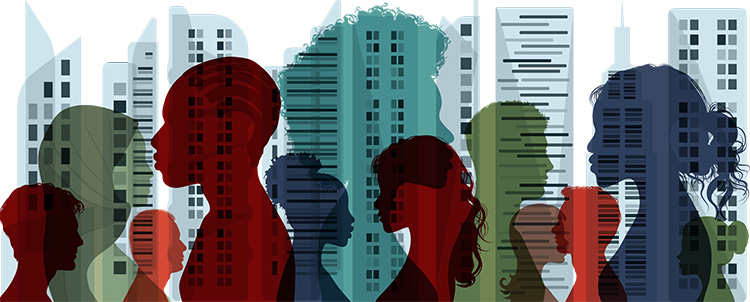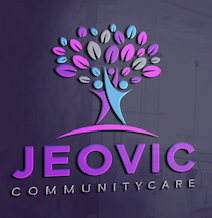
With the number of CALD participants increasing by 288% since 2018 to over 42,000 individuals, we reached out to Jeovic Community Care (QLD), specialists in providing CALD support, and self-identified 'Trust Brokers', to answer some big questions about who the CALD community are and how service providers can better deliver supports to this historically under-supported and under-resourced demographic.
Here is what they had to say...
What is CALD support?
Let's start by defining what we mean by a CALD participant:
In a 2019 outline, the NDIS defined Culturally and Linguistically Diverse (CALD) NDIS participants as "those who were either not born in Australia, New Zealand, the United Kingdom, Ireland, the United States of America, Canada, or South Africa, and/or where the primary language spoken at home is not English".
Given this definition, CALD support is:
The support provided to a participant who is from a non-English speaking background in a way that ensures that freedom, choice, and control as well as their cultural background is respected in the provision of NDIS support to the participant.
How do I access/ask for CALD Support?
Any participant who is from a non-English speaking background who has a funding package with the NDIS can access or ask for CALD support.
There are a few ways to access CALD support as listed below:
- From a NDIS provider who provides CALD supports
- Using a Translating and Interpreting Service to request for support from an NDIS provider if you require information to be translated
- Request culturally competent staff to provide support - this means staff with targeted language skills and cultural knowledge of your heritage
How do I know when someone needs CALD support, and why is it important?
Any participant from a Culturally and Linguistically Diverse background will require CALD support.
This is because they have a right to access services that meet their needs just like every other participant, but to do this they will require a little more support as the NDIS is really set up to cater for English speaking participants from a culturally Anglosaxin background.
Providing CALD support also means CALD participants are supported for:
- better participation in training and employment,
- social inclusion, and
- access to goods, services, facilities, and advocacy to safeguard their rights and help them participate in their community!
Are disability services delivered in the same way for CALD participants?
The short answer is No.
CALD support is the support that embraces the cultural competence of the support workers and a service that is culturally appropriate for the individual.
This means demonstrating cultural competence, expressed by the provision and delivery of services that are equally accessible to all and actively non-discriminatory.
To do this requires:
- An awareness of values, beliefs and prejudices which impact the way we view others
- Sensitivity and awareness of the diverse cultural beliefs and practices of others
- Knowledge and understanding about a person’s specific culture and experiences
- Knowledge and skills of processes for working with persons with disabilities from different cultures, including cross-cultural communication
Overall, this means the support must be typically designed and delivered to meet the needs, aspirations, and individual choices of the participant according to their cultural and linguistic needs.
Who can provide CALD support?
CALD support can be provided by any NDIS service provider who does the following:
- Provides culturally diverse staff who are competent to work across cultures
- Provides staff with targeted language skills and cultural knowledge
- Provides staff who are competent in culturally responsive practices to the service provision in the CALD community
The service provider must also be committed to developing standards and resources that include culturally responsive practices in their service provision.
Service providers should be able to provide interpreting services to all clients who require interpreting services, as well as train their staff on the use of interpreters.
How do you become a CALD provider?
Develop a 'trust brokering' strategy and consulting with a specific CALD community will go a long way in building trust with the community
- Developing standards and resources that include culturally responsive practices in providing service.
- Being able to understand the specific needs of the individual client using accredited interpreters where required to ensure the choice and control of the individual is understood and followed in developing a care plan for the client.
- Being prepared to undertake targeted communication and engagement with the CALD community
Develop a cultural diversity strategy
- This involves prioritising and planning for CALD disability service clients the same way as mainstream clients.
- The outcome of this equitable framework would be the same level of access for CALD and mainstream clients.
Demonstrate cultural competency approaches and training
- Understanding the diversity of values and beliefs across cultures will allow organisations and service providers to respond more appropriately to the needs of individuals with disability and their families.
- Marketing to reach CALD clients should depict that the services provided is suitable to meet their needs and culturally appropriate in providing service to the CALD community.
Integrate appropriate language provisions
- Language support services for CALD people with disability are needed to ensure the effective communication of important information and delivery of quality and suitable services.
- Appropriate language can be provided through easily accessible, inexpensive, qualified translation services.
- The use of TIS (Telephone Interpreting Services), which include access to a large catalogue of languages and dialects and is available 24 hours a day, 7 days per week will also be a great way to engage CALD clients.
Get comfortable with cultural brokering
- Cultural brokering is defined by Jezewski and Sotnik as “bridging, linking or mediating between groups of different cultural backgrounds” to reduce possibilities of conflict, misinterpretation or enhance knowledge exchange, to bring about change.
- Cultural brokerage helps to reduce inequality and improve access and outcomes for CALD people with disability.
- Cultural brokerage should be driven by the community giving the community an opportunity to be experts in their own lives.
Co-design a CALD service policy with CALD people
- This ensures that services provided to CALD clients are culturally appropriate and relevant.
What makes a good CALD provider?
A good CALD service provider is a provider that:
- respects the choice of the participant and
- demonstrates this by ensuring that in care planning for the participant, they can express their choice and control for the type of service they require.
This will ensure that the participant receives quality care.
A participant should expect to be supported in a way that validates who they are as individuals and should receive support that also validates their cultural heritage.
About Jeovic Community Services
Jeovic Community Services provides support services in Brisbane and the surrounding areas.
They specialise in providing CALD support, acting as 'trust brokers' in ensuring that CALD participants receive the tailored support they need.
With an awareness of values, beliefs and cultural beliefs, the Jeovic team use their knowledge and skills to ensure that CALD participants feel understood and supported.
If you would like to learn more about their services, please reach out to Jeovic Community Services.
Are you are looking for CALD supports outside of QLD?
As a national platform, the MyCareSpace connections team can connect you with CALD supports in any state.
Please contact us today by phone 1300 2888 93 or make a support request online.
Sources
- Barriers and exclusions: The support needs of newly arrived refugees with a disability - Refugee Council of Australia
- Settlement-Services-International1.pdf (dss.gov.au)
- Culturally and Linguistically Diverse report | NDIS
- NDIS CALD Profile: Greater Brisbane (communities.qld.gov.au)
- AMPARO-report-for-CALD-NDIS-hr-003.pdf : The NDIS and Culturally and Linguistically Diverse Communities: Aiming high for equitable access in Queensland
- NDIS-CALD-Report-FINAL-2017.pdf (anglicaresa.com.au)
NDIS THERAPY FINDER - FREE SERVICE
LET US FIND YOU A SKILLED SUPPORT WORKER


